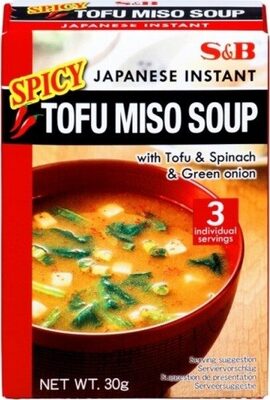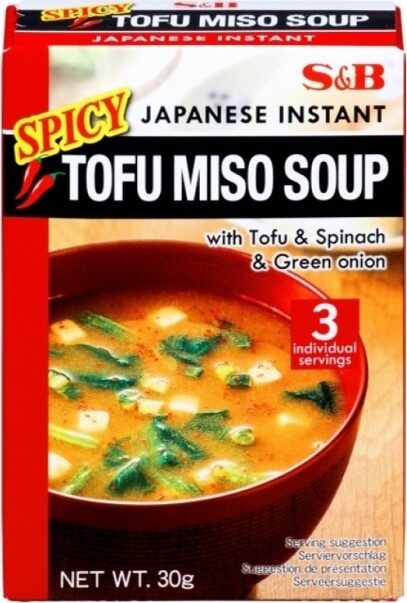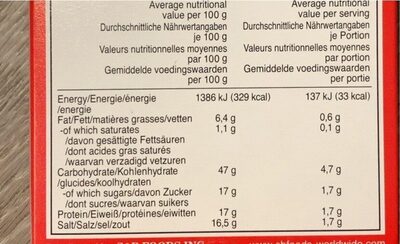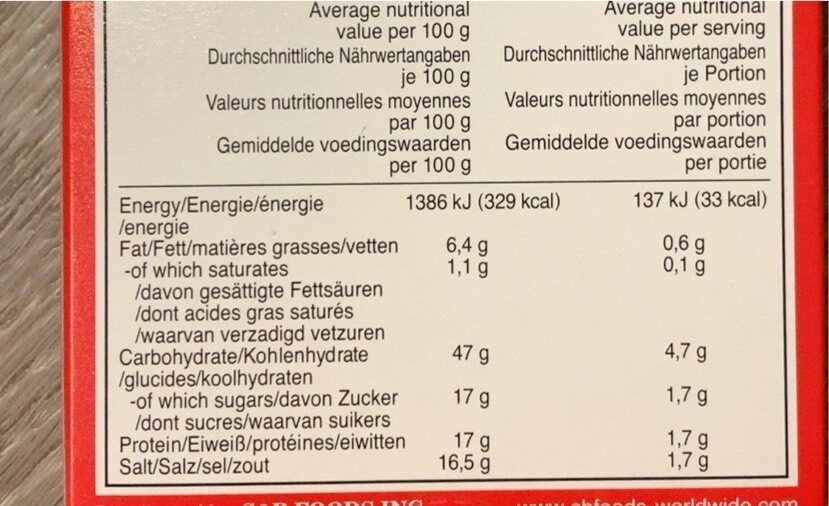Soupe Miso Tofu Epicee S &B - 30 g
This product page is not complete. You can help to complete it by editing it and adding more data from the photos we have, or by taking more photos using the app for Android or iPhone/iPad. Thank you!
×
Barcode: 4901002141745 (EAN / EAN-13)
Quantity: 30 g
Brands: S&B
Categories: Meals, Soups, Miso soup
Labels, certifications, awards:
Green Dot
Countries where sold: France
Matching with your preferences
Environment
Packaging
Transportation
Report a problem
Data sources
Product added on by kiliweb
Last edit of product page on by moncoachigbas.
Product page also edited by elcoco, guernhir, openfoodfacts-contributors, raphael, roboto-app, teolemon, yuka.sY2b0xO6T85zoF3NwEKvllRAffnS_mvqCAfRlhG2l-aMH8b6R-hi_qTHNKg, yuka.sY2b0xO6T85zoF3NwEKvlmJAA-aF_2vtKBb5hHOgwImrMpLYb_JUx9HbE6o, yuka.sY2b0xO6T85zoF3NwEKvlnBrcNzCuiPVaz_SiW2l-NmtNrO1UPNx2JrAHqo.
If the data is incomplete or incorrect, you can complete or correct it by editing this page.











